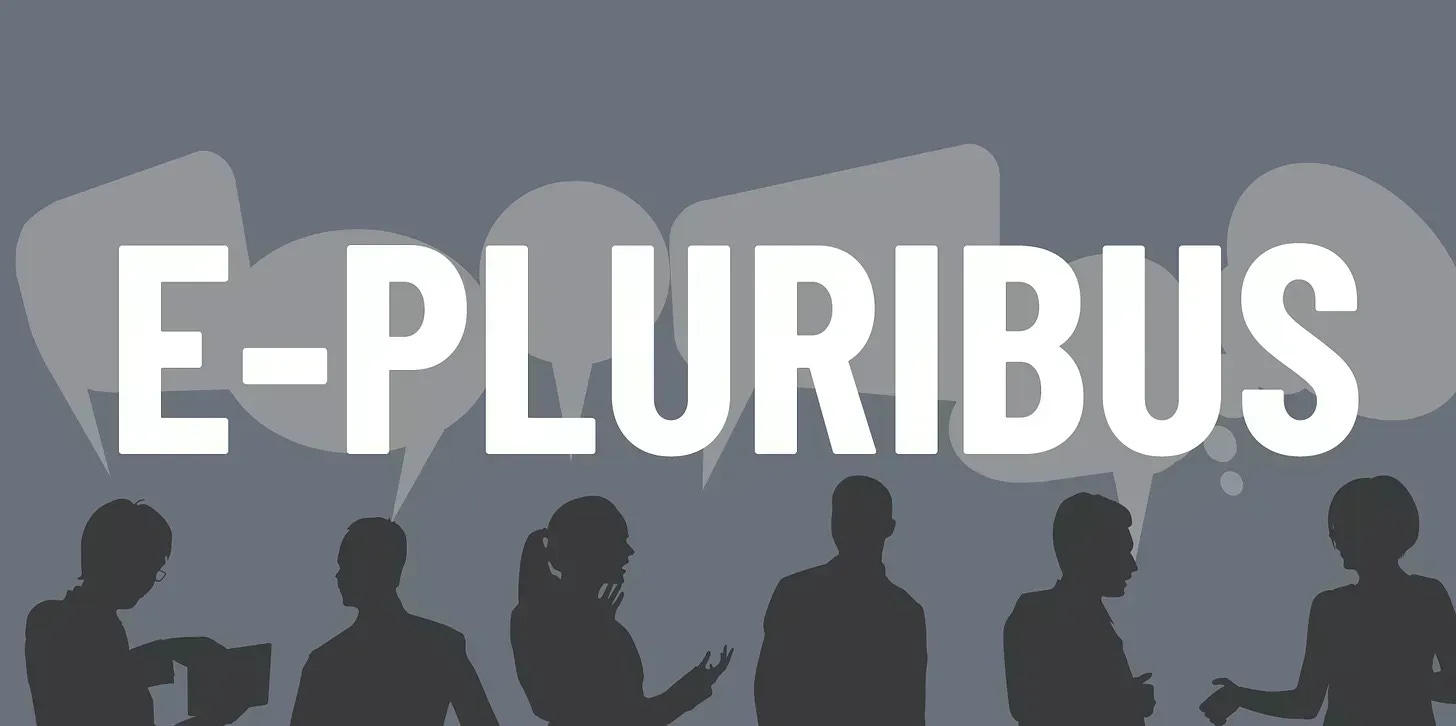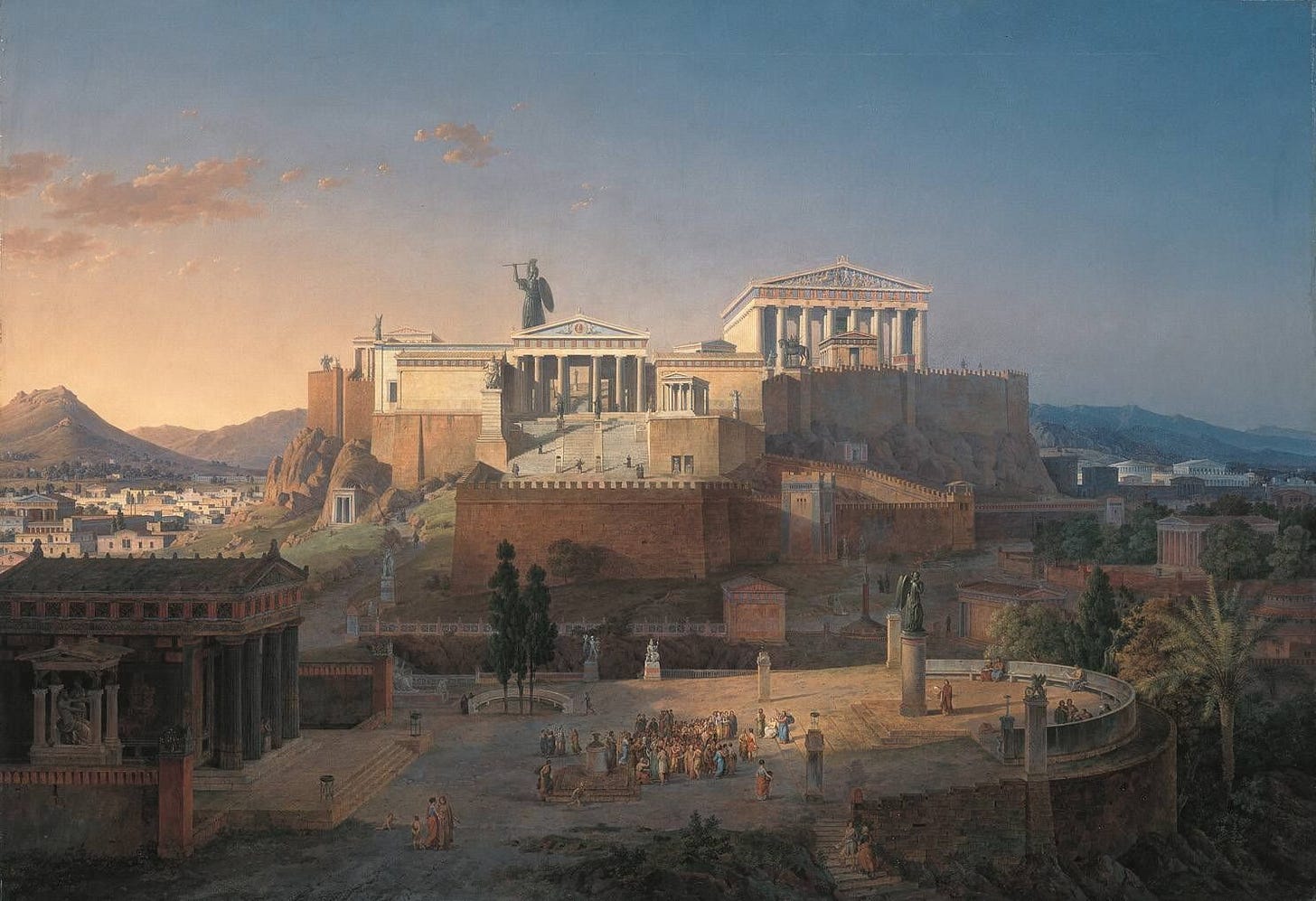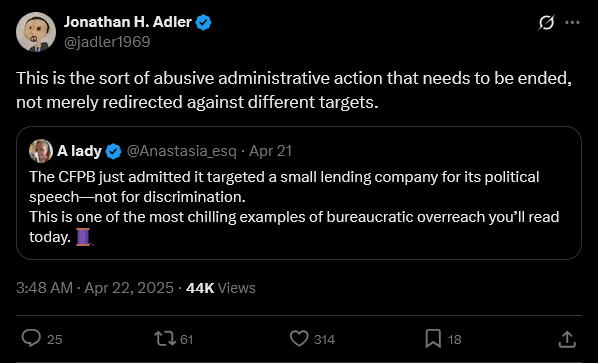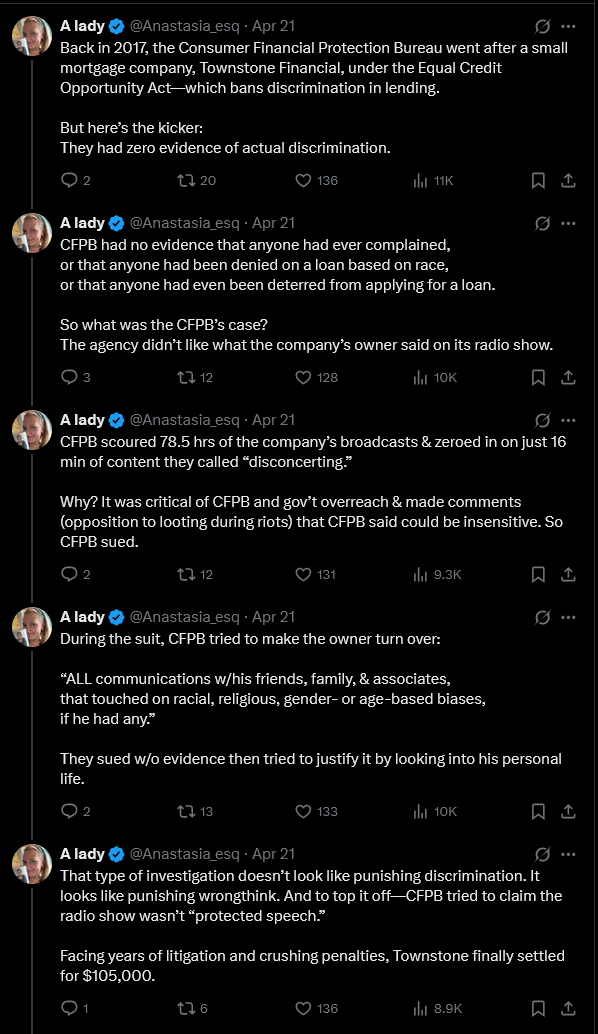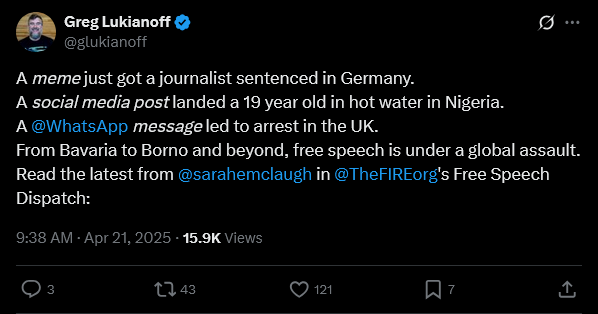E-Pluribus | April 22, 2025
Censored physician vindicated in court; the case for fearless speech; regulating for free speech?
A round-up of the latest and best musings on the rise of illiberalism in the public discourse:
Josh Code: EXCLUSIVE: Doctor Fired For Trans Surgery Comments Receives $1.6 Million Settlement
Former University of Louisville psychiatrist Dr. Allan Josephson was summarily fired in 2019 for publicly challenging the burgeoning movement to uncritically affirm and medically transition children with gender dysphoria. The university will now pay close to $2 million for its shameful attempt to silence a physician who only tried to speak his mind. Josh Code has the story:
In 2019, Josephson was among the first doctors in the United States to lose his job for publicly criticizing the growing movement to quickly affirm and medically transition children with gender dysphoria. His ordeal began after he spoke out at a Heritage Foundation panel on the threat of activist clinicians. “Transgender ideology… is neglectful of the need for developing coping skills and problem-solving skills in children,” he said on the panel.
“The fact that even back then, that position was being held up as somehow being anti-trans is just absurd,” said Jamie Reed, who in 2023 blew the whistle to allege medical misconduct at the Washington University Transgender Center at St. Louis Children’s Hospital.
Since Josephson’s firing, a sea change has taken place regarding transgender medicine in America. President Donald Trump was elected after promising to greatly restrict gender-affirming care for minors. During the 2024 campaign season the GOP spent at least $215 million on trans-themed television ads, the most famous of which targeted Kamala Harris’s stance on transgender issues with the slogan “She’s for they/them, President Trump is for you.” On the day of his inauguration, Trump signed an executive order mandating that the federal government acknowledge “women are biologically female” and “men are biologically male.”
“I'm a doctor who pursues the truth for his patients, so when Trump says there are two sexes—male and female—I’m encouraged by that,” Josephson said.
Jacob Mchangama, Hirad Marami: The Deportation of Dissent
History is chock-full of immigrants enriching the cultures they join with new ideas, a phenomenon that helped solidify the West’s doctrine of free speech. At The Bedrock Principle, Jacob Mchangama and Hirad Marami survey some notable examples to combat the Trump Administration’s recent efforts to deport immigrants who hold unapproved foreign policy opinions:
The Department of Homeland Security recently announced that U.S. Citizenship and Immigration Services would begin screening the social media posts of “aliens applying for lawful permanent resident status,” as well as foreign students and others affiliated with educational institutions deemed linked to antisemitic activity. In particular, USCIS will deny benefits to applicants whose posts indicate support for “antisemitic terrorism, antisemitic terrorist organizations, or other antisemitic activity.”
…
The history of free speech starts in Athens. The ancient democracy of 5th- and 4th-century BCE Athens was home to an array of prominent philosophers. Aristotle, Epicurus, and Diogenes were all non-native Athenian residents, but they embraced Athens’s commitment to Parrhesia — fearless speech — which was essential to the Athenian conception of democracy.
Aristotle and Epicurus set up schools that taught strands of philosophy that often clashed with popular Athenian thought. Aristotle was openly critical of many of the aspects of the very democracy that allowed him to philosophize. In his famous “funeral oration” speech, Pericles, the 5th-century BCE general and politician, not only held up Athens as an example of democratic deliberation and free inquiry, but he also lauded the city’s openness to foreigners as a sign of its strength and vitality — a stark contrast to its closed and paranoid rivals in Sparta. Athenians, Pericles said:
“throw open [their] city to the world, and never by alien acts exclude foreigners from any opportunity of learning or observing [their customs].”
Athens’s openness encouraged the migration of talented scholars and intellectuals, like Herodotus and Protagoras, who championed the city’s values despite their foreign background. Without Athens’s openness to foreign philosophers, thinkers, and ideas, it is very likely that what we today view as the original epicenter of Western philosophy would have been greatly stunted. This Athenian spirit of openness — even to foreign critics of its democracy — would prove foundational not just to Western philosophy but to a broader tradition of societies that grew stronger by welcoming dissenting outsiders. That tradition did not end in antiquity.
…
In the 18th century Elie Luzac, a descendant of French Huguenots refugees, became the most prominent printer of Enlightenment texts, and, despite being a pious Calvinist, vigorously defended the free speech of atheists: “we cannot take pride in the power of persuasion of the most important truths, as long as we prevent atheists, freethinkers, and others of that ilk from brandishing their pen.”
Other prominent figures who sought refuge in the Dutch Republic include the famous English proto-liberal John Locke — who fittingly wrote his defense of religious tolerance, A Letter Concerning Toleration, in his Dutch exile — and the famous French philosopher Rene Descartes. The French philosopher and refugee Pierre Bayle extolled the Republic as having “an advantage found in no other country: there is such liberty of printing that writers from all Europe turn to Holland when they have difficulty in obtaining a license for their publications.”
To be sure, both Spinoza and Bayle severely tested the limits of Dutch tolerance and free speech. Yet, the comparative openness of the Dutch Republic resulted in a population that read more books and had higher degrees of literacy than anywhere else in Europe. The Dutch also launched the first weekly newspapers in Europe, creating “a culture of all-pervasive and unremitting debate in which all segments of society took part.”
What Athens was for Western philosophy, the Dutch Republic was for the early Enlightenment, and the contributions of foreigners and their ideas cannot be overlooked.
Michael Gregory: Why deregulating online platforms is actually bad for free speech
First Amendment advocates often start with the presupposition that free speech flourishes with less regulation. Some scholars have a different take on the matter, however. They claim that certain kinds of speech (e.g. “online misinformation”) can deceive the public and hinder their ability to honestly evaluate ideas, granting the state a legitimate interest in suppressing misinfo. We remain skeptical that any government can be trusted to properly define “misinformation,” but Michael Gregory disagrees over at The Conversation:
Free speech in the U.S. has always been accompanied by a series of exceptions, laid out clearly by the courts, that constrain speech based on a competing concern for the prevention of harm. For example, speech that threatens, incites or directly causes harm is not protected speech.
…
The need for citizens in a democratic state to be autonomous speakers and thinkers underscores the importance of content-based regulation in upholding free speech. Research has shown that hate speech online in particular and the proliferation of extremism online in general have a chilling effect on online speech through intimidation and fear. So, restrictions on hate speech can support free speech rather than undermining it.
In addition, the spread of online misinformation and the challenges of detecting it can similarly undermine the people’s ability to exchange ideas and evaluate viewpoints as autonomous speakers or listeners. In fact, research shows that users are bad at distinguishing between true and false claims online. This fundamental weakness undermines your ability to operate as an autonomous speaker or listener.
Finally, increased polarization online, caused by the dissemination of falsehoods, undermines the democratic point of free speech protections. People cannot meaningfully engage in the marketplace of ideas on a platform where falsehoods are amplified. Importantly, this insight aligns with users’ preference that platforms remove disinformation rather than protect it.
All of this is evidence that deregulating social media platforms is a net loss for free speech. In economic markets, maintaining a consumer’s freedom of choice requires regulations against coercion and deceit. In the marketplace of ideas, the principle is the same: The free trade of ideas requires regulation.
Around X
Legal scholar Jonathan Adler highlights a censorship case that should disturb every American: a federal agency suing a small business for making allegedly “insensitive” comments on its own radio show:
More details on the case from the linked X thread:
The prospects for free speech around the globe aren’t looking great at the moment, if FIRE’s latest dispatch is any indication:



